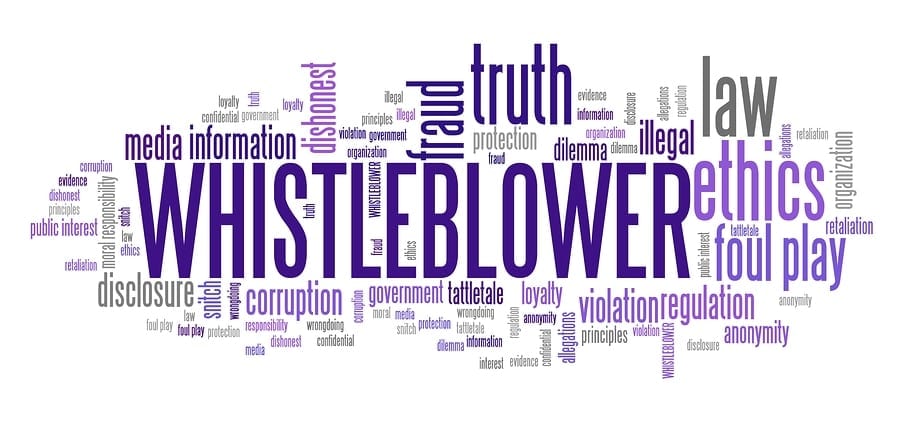Could I Be Fired for Refusing to Do Something Illegal?

The power dynamics of the workplace can sometimes be confusing. Employees are often required to perform their job duties while respecting a hierarchy and completing tasks assigned to them by their manager or supervisor. Yet, what happens when someone within the company asks an employee to do something unsafe or even illegal? Can that person be fired for refusing to accomplish the task given to them? In Georgia, the answer can be complicated.
Georgia Is An At-Will State
Georgia is considered an employment-at-will state. Employment at will means that an employer has the right to terminate an employee at any time for good-cause, bad-cause, or with no cause at all. Essentially, an employer can fire an employee for any reason or no reason. If an employee refuses to complete an assignment, even if it is illegal, realistically they can face termination.
Since Georgia is an employment-at-will state, this is where the waters can get muddy. An employer does not have to give a reason for terminating an employee. However, that doesn’t mean that the employer can’t face legal liabilities if the employee can prove they were dismissed for refusing to engage in illegal activity. Essentially, can an employee be fired for refusing to do something illegal? Yes. Can an employer be liable for firing an employee they dismissed for refusing to do something illegal? Yes.
Wrongful Termination in Georgia
While it is true that an employee may be fired for refusing to cooperate in illegal workplace activities, that employee may have legal avenues to hold their employer accountable. An employee who believes that they have been fired for refusing to do something illegal may be able to take the employer to court if the firing is illegal. Examples of illegal terminations include:
- Discrimination– Employees cannot be fired based on their race, sex, religion, age, disability, or sexual orientation.
- Family or Medical Leave- Employers with 50 or more employees are required under the Family and Medical Leave Act to give employees 12 weeks off work for the pregnancy, adoption, or a medical condition. The employer must reinstate the employee in an equivalent position. Employees are not allowed to be fired for utilizing FMLA.
- Breach of Contract- If firing an employee violates the terms of the employee’s employment contract, the employer could be in breach of that contract.
- Retaliation- Employees cannot be fired or punished for legally protected activities. These activities include making a complaint about harassment or discrimination in the workplace.
- Whistleblower Protections– The Whistleblower Protection Act also protects employees from retaliation if they alert others to workplace violations or violations of state or federal law. Violations that a whistleblower may report include the breaking of state or federal laws, mismanagement of funds, abuse of authority, harassment, or safety violations.
The Burden of Proof for Illegal Termination
Proving that an illegal termination has taken place can be challenging. An employee must show that they were fired only for refusing to perform an illegal activity. An employee must also prove that the act they refused to participate in is illegal under criminal law. In addition, there must be evidence that the illegal act was specifically requested by the employer. Demonstrating all of this in court can be a heavy burden, that is why employees need experienced legal counsel on their side.
Contact a Georgia Employment Lawyer
If you believe that you have been dismissed for refusing to cooperate in illegal activity, contact the Georgia whistleblower lawyers at Vaughn Law Firm immediately. We will listen to your story, work to protect your rights, and begin the process of gathering evidence vital to your legal claim.
Contact us today to talk about your situation and learn more about what we may be able to do to help.




